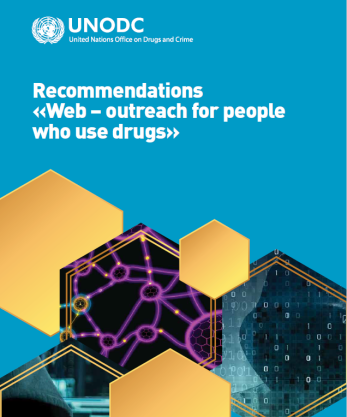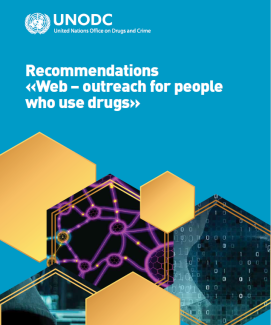
Search
Generative Artificial Intelligence-Enabled (GenAI) Digital Mental Health Medical Devices
AGENDA
2025 FDA Perspective: Generative Artificial Intelligence-Enabled (GenAI) Digital Mental Health Medical Devices
FDA Perspective: Regulatory Considerations for Digital Mental Health Therapeutics
Topic 1: Large Language Models in...
Ethics of artificial intelligence in medicine
This article reviews the main ethical issues that arise from the use of artificial intelligence (AI) technologies in medicine. Issues around trust, responsibility, risks of discrimination, privacy, autonomy, and potential benefits and harms...
Revolutionizing Addiction Medicine: The Role of Artificial Intelligence
Introduction
Addiction medicine is becoming more of an issue as addiction-related problems continue to plague people all over the globe, resulting in serious health consequences. Addiction has become increasingly prevalent in recent years...
Exploring the Potential and Challenges of Digital and AI-Driven Psychotherapy for ADHD, OCD, Schizophrenia, and Substance Use Disorders: A Comprehensive Narrative Review
Purpose of the Review:
Psychotherapy remains a fundamental component of mental health treatment, yet it encounters significant barriers to accessibility and efficacy. The integration of digital therapies, encompassing e-Health, m-Health...
Digital interventions targeting excessive substance use and substance use disorders: a comprehensive and systematic scoping review and bibliometric analysis
Addictive substances are prevalent world-wide, and their use presents a substantial and persistent public health problem. A wide range of digital interventions to decrease use and negative consequences thereof have been explored, differing...
A systematic review of chatbot-assisted interventions for substance use
Objectives: This study systematically reviewed research on the utilization of chatbot-related technologies for the prevention, assessment, and treatment of various substance uses, including alcohol, nicotine, and other drugs.
Methods: Foll...
Adherence to mHealth quit smoking application ‘stopcoach’ on top of evidence based smoking cessation counselling: association with participant characteristics and long-term abstinence
Background
Smoking is more common in lower socioeconomic position (SEP) groups, but smoking cessation interventions are less effective for these groups. StopCoach, an mHealth intervention, supports people with lower SEP in quitting smoking...
Outcomes Of The Family Empowerment Program - An Online Therapy For Rural Australians Caring For Someone With A Substance Problem
Overcoming barriers to traditional care delivery and pharmacy challenges: a qualitative study of buprenorphine, telehealth, and a digital therapeutic for opioid use disorder
Background
The opioid epidemic in the U.S. contributes to increased morbidity and mortality from drug overdoses, but barriers to traditional opioid use disorder (OUD) treatment limit access to care. During the COVID-19 pandemic, Public...
Disruptions to U.S. local public health’s role in population-based substance use prevention and response during COVID-19
Background
The COVID-19 emergency has tested the public health, medical, and public safety infrastructure of the United States (U.S.) in unprecedented ways. As the focal point for public health in their communities, local health...
Improving equity and access to buprenorphine treatment through telemedicine at syringe services programs
Background
In the United States, access to buprenorphine remains low and disparities regarding who receives treatment have emerged. Federal laws have regulated buprenorphine delivery, ultimately limiting its implementation more broadly...
The Effectiveness of Telemedicine to Prevent Relapse among a Clinical Sample of Substance-Use Disorder Patients: an Experience from a Developing Country during the COVID-19 Pandemic - Kristiana Siste, MD, PhD, Day 5, 11:00-12:31
Presented as part of the Uniting the global community to face the challenge of addiction event, online on 16th May, 2022
Presentation:
- The Effectiveness of Telemedicine to Prevent Relapse among a Clinical Sample of Substance-Use...
Innovative approach for smartphone applications to share trustworthy information on parenting and family skills – the scaling of Children Immunization App (CIMA) in Middle East and Sub-Saharan Africa - Dr. Ziad El-Khatib, Day 4, 11:00-12:30
Presented as part of the Uniting the global community to face the challenge of addiction event, online on 15th May, 2022
Presentation:
Innovative approach for smartphone applications to share trustworthy information on parenting and...
Strategies Adopted by Addiction Facilities during the Coronavirus Pandemic to Support Treatment for Individuals in Recovery or Struggling with a Substance Use Disorder: A Scoping Review
Recommendations "Web outreach for people who use drugs"
The UNODC Regional Program Office for Eastern Europe (Kiev, Ukraine), in collaboration with the Humanitarian Action Fund (St. Petersburg, Russia), issues recommendations on web outreach for people who use drugs (PWUD), including people who...
Is telemedicine the answer to rural expansion of medication treatment for opioid use disorder? Early experiences in the feasibility study phase of a National Drug Abuse Treatment Clinical Trials Network Trial
Abstract
Telemedicine (TM) enabled by digital health technologies to provide medical services has been considered a key solution to increasing health care access in rural communities. With the immediate need for remote care due to the...
Telehealth during COVID-19: The perspective of alcohol and other drug nurses
Best Practices for Integrating Medical Students Into Telehealth Visits
Abstract
Telehealth has become an increasingly important part of health care delivery, with a dramatic rise in telehealth visits during the COVID-19 pandemic. Telehealth visits will continue to be a part of care delivery after the...
Virtual Twelve Step Meeting Attendance During the COVID-19 Period A Study of Members of Narcotics Anonymous
Abstract
Objectives:
Face-to-face meetings are key components of Twelve Step (TS) fellowships’ support of members’ abstinence. Home confinement during COVID-19 made this less feasible. Our objective was to ascertain whether a transition...
Use of Technology in Psychosocial Treatment for Methamphetamine Use
This webinar describes how telephone, mHealth (text-messaging and apps), and computer-based interventions are used in the treatment of methamphetamine use. Key elements of the webinar include
- the research supporting each modality
- sug...
Share the Knowledge: ISSUP members can post in the Knowledge Share – Sign in or become a member





